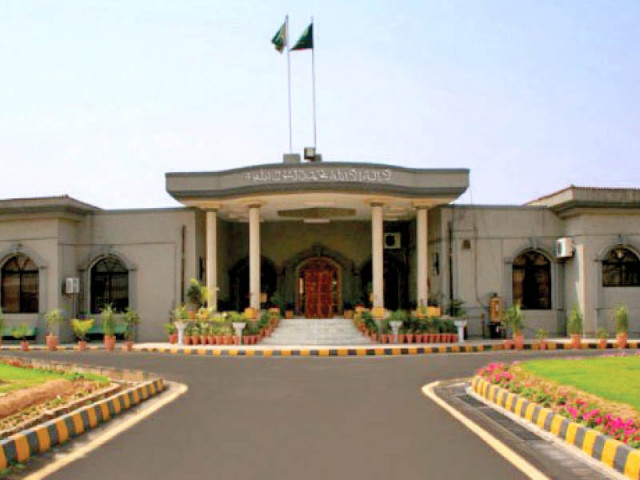Enforced disappearance? IHC asks if missing man was involved in anti-state activities
Directs sleuths to submit detailed report in two weeks on whereabouts of the man

Directs sleuths to submit detailed report in two weeks on whereabouts of the man. PHOTO: EXPRESS
Hearing the case on Thursday Justice Mohsin Akhtar Kayani said that the report was not ‘satisfactory’ adding that field officers of two intelligence agencies appear before the court on March 13 and submit a detailed report, in a sealed envelope, on whether the man was allegedly involved in anti-state activities.
Justice Kayani further remarked that representatives of the agencies may also tell the court if the allegedly ‘missing’ man had left the country since it was their duty to provide whereabouts of the man.
In the event, the court said, sleuths are unable to file a detailed report at the next hearing of the case, then director generals of the Inter-Services Intelligence (ISI) and Military Intelligence (MI) would be required to appear in person before the court.
Petitioner Syed Ali Abbas, through his counsel Hafiz Arfat Ahmad, had approached the IHC against what he claimed was the enforced disappearance of Imran Sajjad.
Ahmad told the court that the ‘detainee’ hails from a notable family of Gahi Guffanwala Sharif, a small village near Chakwal. Further, Sajjad’s father is “Makhdoom” of Gahi Sharif and considered to be a prominent religious scholar in the locality.
After completing his education in Pakistan, Ahmad said, 34-year-old Sajjad went to Iran to study Islamic studies at the Al-Mustafa International University and completed his graduation with distinction by winning a gold medal.
The lawyer added that Sajjad left for Islamabad on April 19, 2016, at 1pm. After a while, when the petitioner tried to contact Sajjad, his phone was switched off. Abbas also tried to call the driver, but his mobile phone was switched off too.
Fearing that something untoward may have happened, the petitioner and Sajjad’s family started searching for him and his driver. The Islamabad police were also approached for lodging of an FIR about their disappearance. However, the authorities flatly refused to register the case.
When the police did not register the case, Ahmad said, the family thought it appropriate to approach police in Sargodha, the last district Sajjad had visited before heading towards Islamabad.
On April 25, 2016, Sargodha police lodged an FIR against unidentified people.
Now, Ahmad told the court, he had learned on good authority that Sajjad and driver were in the custody of an intelligence agency.
Ahmad added that petitioner’s family had been suffering from acute mental torture and agony without any justification over the disappearance of Sajjad, but no state agency was cooperating with them for the recovery of ‘detainee’.
Listing the federation through the Ministry of Interior, secretary of Ministry of Interior, Inspector General of Islamabad Police, Secretary of Ministry of Defence and the director general of ISI as respondents in the case, Ahmad urged the court to direct the respondents to immediately produce the detainee before the court.
Moreover, he prayed that the court direct the relevant authorities to register a criminal case against those responsible for Sajjad’s alleged abduction and subsequent detention.
Following the hearing, the court adjourned the case till March 13.
Published in The Express Tribune, March 3rd, 2017.



















COMMENTS
Comments are moderated and generally will be posted if they are on-topic and not abusive.
For more information, please see our Comments FAQ